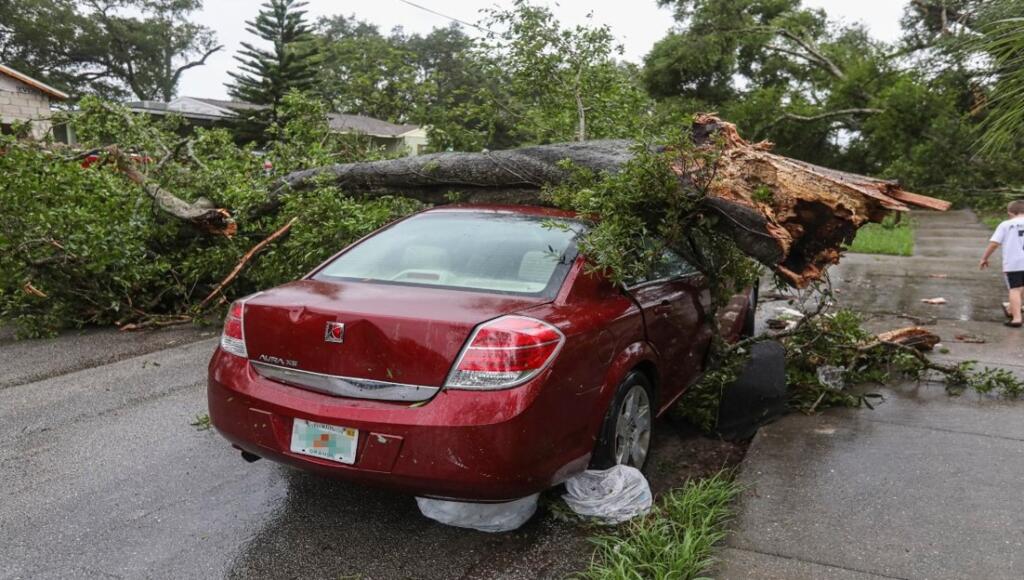Freak weather events can transform a routine commute into chaos and danger. Tornadoes, flash floods, and blizzards can strike without warning. These unforeseen occurrences can leave you shaken. It’s easy to feel unsure of how to proceed in such situations.
The Federal Highway Administration notes that each year, there are more than 5,891,000 vehicle crashes on average. Around 21% of these, totaling nearly 1,235,000, are due to adverse weather conditions. Crashes that occur in poor weather are categorized as weather-related.
In this guide, we’ll equip you with the knowledge to prioritize your safety and navigate the legal landscape following a freak weather accident.
Secure the Scene and Seek Medical Attention
Following any accident, preserving your safety and the protection of others around you should come first. If it is feasible, move your car to a secure area away from traffic and switch on your warning lights.
Check for injuries on both you and any other passengers. Make an emergency service call right away if you require medical treatment. Never delay in seeking expert medical attention for an examination, even if it seems like a small injury.
What is an example of a car crash injury with delayed symptoms?
One such injury is whiplash, a common physical trauma on the neck that is produced by abrupt, fast back-and-forth movement. The movement that causes a whiplash is similar to a whip cracking. According to Everyday Health, around 0.3% of the American population suffers from whiplash injuries. That figure amounts to around one million individuals.
Document the time you called emergency services and note any response delays. This information may be important later. If you are unable to call yourself, ask a bystander for help.
Document the Damage
While you wait for help to arrive, use your phone to document the scene. Capture images of the damage to your car, the surroundings, and any weather-related factors that could have caused the collision.
If possible, capture video footage as well because this documentation will be crucial for potential legal proceedings.
Capture any timestamps or weather alerts displayed on your phone to further solidify the weather conditions at the time of the accident. Pay close attention to details like downed power lines, flooded roadways, or blizzard conditions.
Exchange Information with Others Involved
If you are able and it is safe to do so, exchange contact information with any other drivers involved in the accident. It’s recommended to obtain the names and badge numbers of any law enforcement personnel present at the scene.
Getting in touch with any witnesses who might be able to offer an unbiased account of what happened is also beneficial. If you are unable to exchange information at the scene, follow up later with the police report number to obtain the details.
The police report may also contain valuable details about the weather conditions reported at the time of the accident.
Consult a Local Car Accident Lawyer
Freak weather accidents can introduce complexities into the legal process. Determining liability can be especially challenging, as the unpredictable nature of the weather can make it difficult to assign blame. It is strongly advised that you speak with a lawyer who has handled auto accidents brought on by unusual weather occurrences.
According to TorHoerman Law, attorneys can help you understand your options and rights as well as represent you in court if required. Early legal counsel could spare you a great deal of money, effort, and worry, so don’t be scared to get one. Cities like St. Louis, Missouri, are no strangers to freak weather events.
What kind of extreme weather does Missouri have?
The Washington Post highlights that dense fog often covers parts of Missouri in the winter seasons. This increases the likelihood of car accidents because of obstructed vision.
Tornadoes, sudden downpours causing flash floods, and even winter blizzards can all create dangerous driving conditions. If you’ve been involved in a car accident caused by a freak weather event in the city, consider seeking help. A car accident lawyer in St. Louis will be familiar with local weather patterns and personal injury law in Missouri.
Prioritizing Your Physical and Emotional Well-Being
Freak weather accidents can be physically and emotionally traumatic. Bankrate notes that 25–33% of drivers show signs of PTSD at least 30 days following a significant collision, according to data. More than half of these PTSD-afflicted accident survivors also suffer from mental problems. Many also exhibit symptoms of serious depression.
In addition to any legal issues, it’s important to prioritize your well-being. Seek medical attention for any injuries, even if they seem minor.
What should I do if I feel depressed after a car crash?
Don’t hesitate to follow up with a doctor if you experience emotional distress. Take time to process the experience and don’t be afraid to seek professional help from a therapist or counselor if needed.
Talking to a mental health professional can help you cope with anxiety, flashbacks, or other emotional challenges that may arise after the accident. Remember, your physical and emotional health are paramount during this recovery process.
Freak weather accidents can be terrifying and confusing. You can protect yourself and ensure a smoother recovery process by following these steps.
Remember to prioritize your safety and well-being, document the scene thoroughly, and consult with a lawyer to understand your legal options. Most importantly, don’t hesitate to seek medical and emotional support as you navigate this challenging experience.
